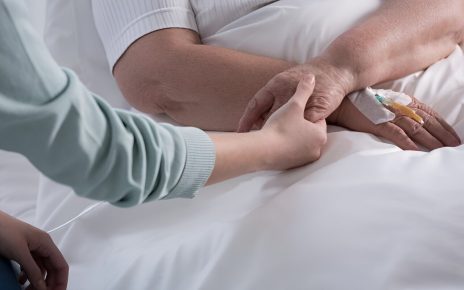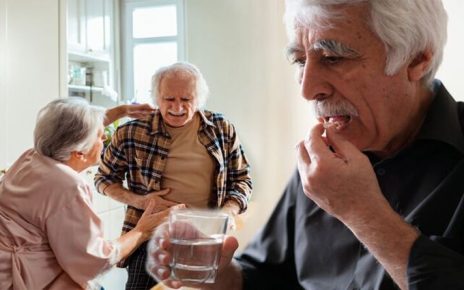High blood pressure: Doctor explains benefits of hibiscus tea
When you subscribe we will use the information you provide to send you these newsletters.Sometimes they’ll include recommendations for other related newsletters or services we offer.Our Privacy Notice explains more about how we use your data, and your rights.You can unsubscribe at any time.
High blood pressure is a common condition that affects more than a quarter of all adults in the UK. It can be difficult to know if you’re at risk of hypertension, but there are some key signs you should be looking out for.
High blood pressure – which is also known as hypertension – is a serious medical condition that can cause a number of deadly complications.
If you have high blood pressure, you’re more likely to have a heart attack or stroke.
Lowering your blood pressure even just a little bit could help to protect against these conditions.
But knowing whether you have hypertension can be incredibly difficult.

High blood pressure rarely has any noticeable symptoms.
But if you have a sudden spike in blood pressure, there are some symptoms that may develop.
A hypertensive crisis – where the blood pressure drastically rises over a short space of time – is a serious medical emergency.
The condition can cause some patients to have a severe headache, anxiety, chest pain, vision changes, shortness of breath, and even nosebleeds.
If you have high blood pressure, and develop any of these key symptoms without any obvious cause, you should consider seeking medical attention straight away.
DON’T MISS
High blood pressure: Nosebleeds are a sign [ANALYSIS]
Cold weather warning: Winter may increase your risk of a heart attack [LATEST]
Best at-home blood pressure monitors for cardiovascular health [RESEARCH]
Medical website Healthline said: “Hypertensive crisis is defined as a blood pressure reading of 180 milligrams of mercury (mmHg) or above for the systolic pressure (first number) or 120 or above for the diastolic pressure (second number).
“It’s often caused by skipping medications or secondary high blood pressure.
“If you’re checking your own blood pressure and get a reading that high, wait a few minutes and then check again to make sure the first reading was accurate.
“Emergency hypertensive crisis can result in severe complications, including fluid in the lungs, brain swelling or bleeding, [or] stroke.”

The only way of knowing if you have high blood pressure is to get tested.
Everyone over the age of 40 should consider checking their blood pressure every five years.
You can check your risk of hypertension at your local doctors’ surgery, at some pharmacies, or by using your own device at home.
You’re more likely to have hypertension if you’re overweight, or add large amounts of salt to your diet.
Making healthy lifestyle choices is the best way to lower your chances of high blood pressure.
It’s vital that you eat at least five types of fruit and vegetable every day.
Regular exercise could also help to protect against hypertension, according to the NHS.
Everyone should aim to do at least 150 minutes of moderate-intensity activity every week.
Source: Read Full Article



